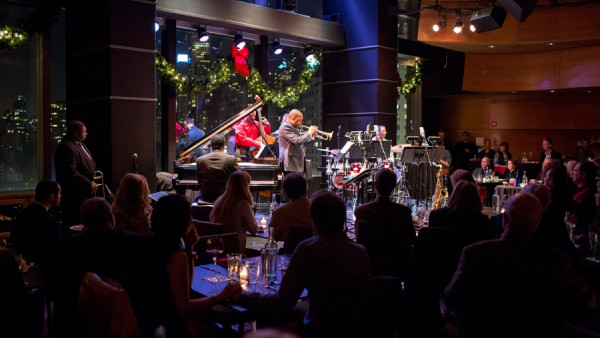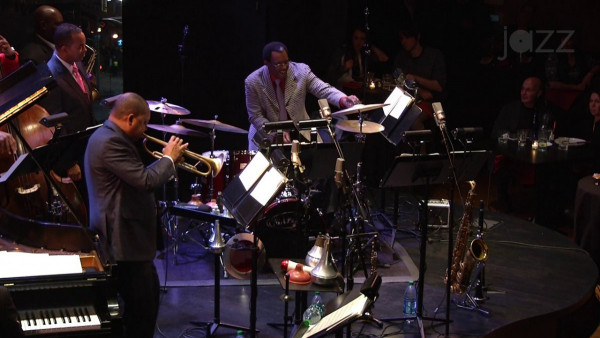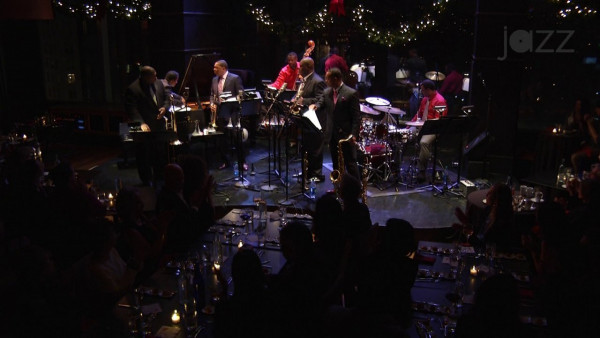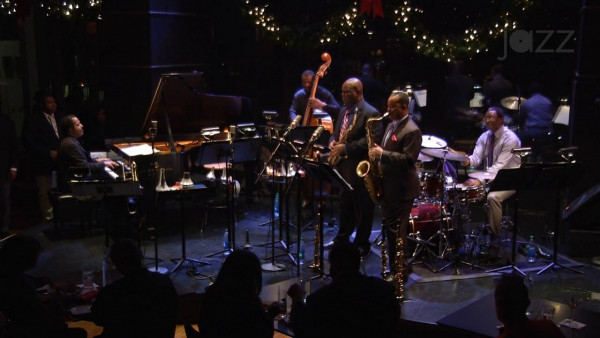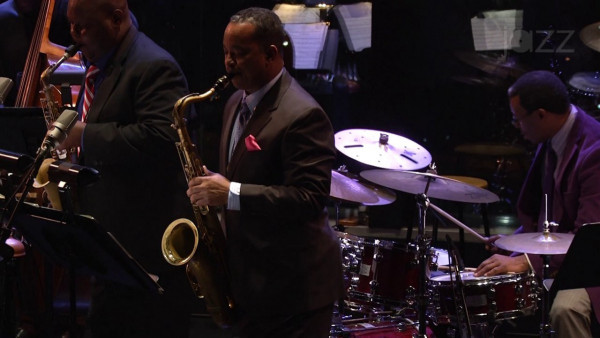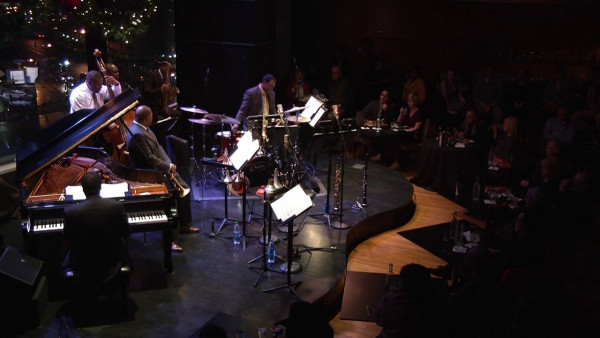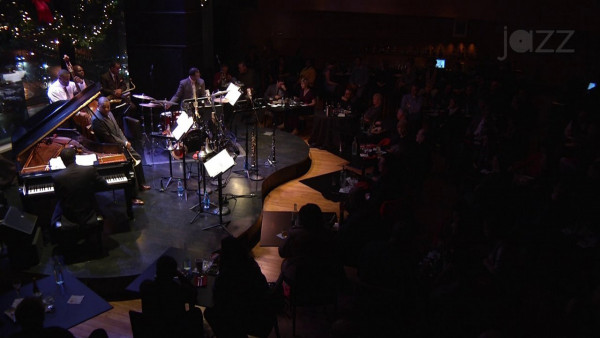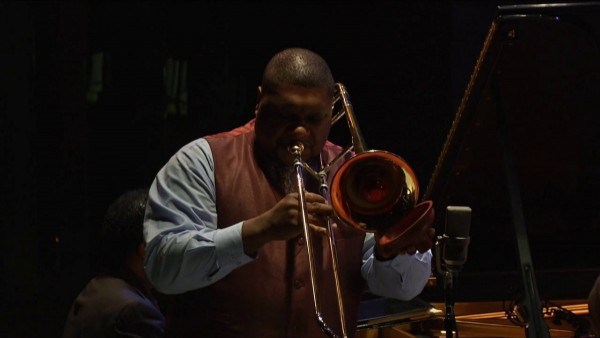Sharing a Jazzy Working Holiday
The close of the year is a time for many things: cozy reunions, warm nostalgia, extravagant splurges. If you’re Wynton Marsalis, artistic director of Jazz at Lincoln Center, it’s also a time to set up shop in a smallish room and get back to work, as if you had ever stopped.
On Thursday, in the first set of a six-night run at Dizzy’s Club Coca-Cola, Mr. Marsalis led a near facsimile of his old septet, making it sound uncannily like a steady-working band. The small scale of the room, and the easy collegiality on the bandstand, were offered as an implicit holiday gift.
Twenty years ago, the Wynton Marsalis Septet was the main vehicle for this trumpeter-composer’s music, a special forces unit uniquely equipped to carry out his directives. His signature innovation there involved timbre and orchestration, and, more precisely, the way he could imbue a four-horn front line with all manner of slithery internal tension.
Among his responsive partners were the trombonist Wycliffe Gordon, the alto saxophonist Wessell Anderson and the tenor saxophonist and clarinetist Victor Goines, who have kept their ties to Jazz at Lincoln Center and who are all on board this week. Their blend was both earthy and streamlined during “Jig’s Jig,” a modified blues set to New Orleans habanera rhythm, and inspired by the gait of a child hand in hand with an elderly person. (Those details came in an introduction by Mr. Marsalis, who knows how to sound homespun even as he makes himself carefully understood.)
While the horns barked or bleated or murmured and covered a lot of acreage in their respective solos, the rhythm section gave an impressive lift to nearly every tune. Herlin Riley was riveting at any tempo, whether laying into his ride cymbal or breaking up the pulse with sly subdivisions across his kick drum, toms and snare. Reginald Veal gave his bass lines a heavy traction and an almost tactile depth of sound.
And, at the piano, Eric Reed was an endlessly resourceful improviser: not only in his solos, on agreeable fare like Thelonious Monk’s “Brake’s Sake,” but also in his comping behind others. Especially when backing Mr. Marsalis, he eased away from strict chordal accompaniment, throwing in frisky riffs and spidery lines, as provocation and framework.
What Mr. Marsalis did with the solo spotlight was predictably bracing, and the furthest thing from complacent. On “Double Rondo on the River (Pedro’s Getaway),” originally composed for a film score, he started out with a string of slangy interjections while the rest of the band played his straight man; when he finally took an open lane, removing his mute from the bell of his horn, he delivered a pocket opus, girded by structural integrity and rhythmic aplomb. And, for his closer, a traditionally brisk “Cherokee,” he fired off eighth-note phrases with razor clarity, backed only by bass and drums.
Perhaps because this was an opening set, the room was thick with Jazz at Lincoln Center employees and board members. The engagement’s price structure — each ticket costs $125, including a $90 donation (far higher on New Year’s Eve) — turned every listener into a patron.
What would be welcome is a document of the entire run, along the lines of Live at the Village Vanguard, a 1999 boxed set that also featured the septet. The caliber of the music is high enough, and besides, there’ll be a need for new gifts this time next year.
The Wynton Marsalis Septet performs through Tuesday at Dizzy’s Club Coca-Cola, Frederick P. Rose Hall, Jazz at Lincoln Center, 60th Street and Broadway; 212-258-9595, jalc.org
By Nate Chinen
Source: The New York Times

